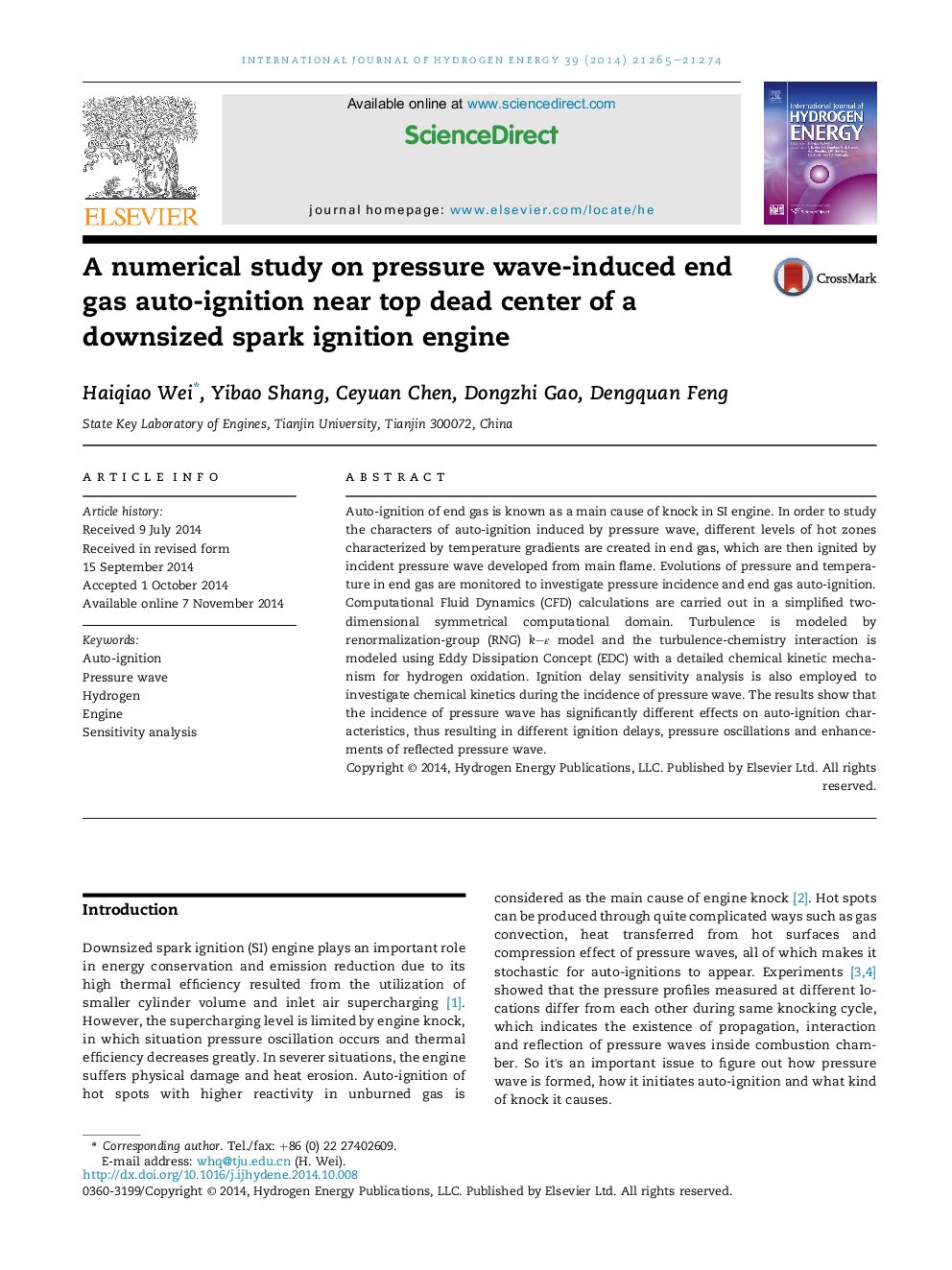| Article ID | Journal | Published Year | Pages | File Type |
|---|---|---|---|---|
| 7716928 | International Journal of Hydrogen Energy | 2014 | 10 Pages |
Abstract
Auto-ignition of end gas is known as a main cause of knock in SI engine. In order to study the characters of auto-ignition induced by pressure wave, different levels of hot zones characterized by temperature gradients are created in end gas, which are then ignited by incident pressure wave developed from main flame. Evolutions of pressure and temperature in end gas are monitored to investigate pressure incidence and end gas auto-ignition. Computational Fluid Dynamics (CFD) calculations are carried out in a simplified two-dimensional symmetrical computational domain. Turbulence is modeled by renormalization-group (RNG) k-ε model and the turbulence-chemistry interaction is modeled using Eddy Dissipation Concept (EDC) with a detailed chemical kinetic mechanism for hydrogen oxidation. Ignition delay sensitivity analysis is also employed to investigate chemical kinetics during the incidence of pressure wave. The results show that the incidence of pressure wave has significantly different effects on auto-ignition characteristics, thus resulting in different ignition delays, pressure oscillations and enhancements of reflected pressure wave.
Related Topics
Physical Sciences and Engineering
Chemistry
Electrochemistry
Authors
Haiqiao Wei, Yibao Shang, Ceyuan Chen, Dongzhi Gao, Dengquan Feng,
